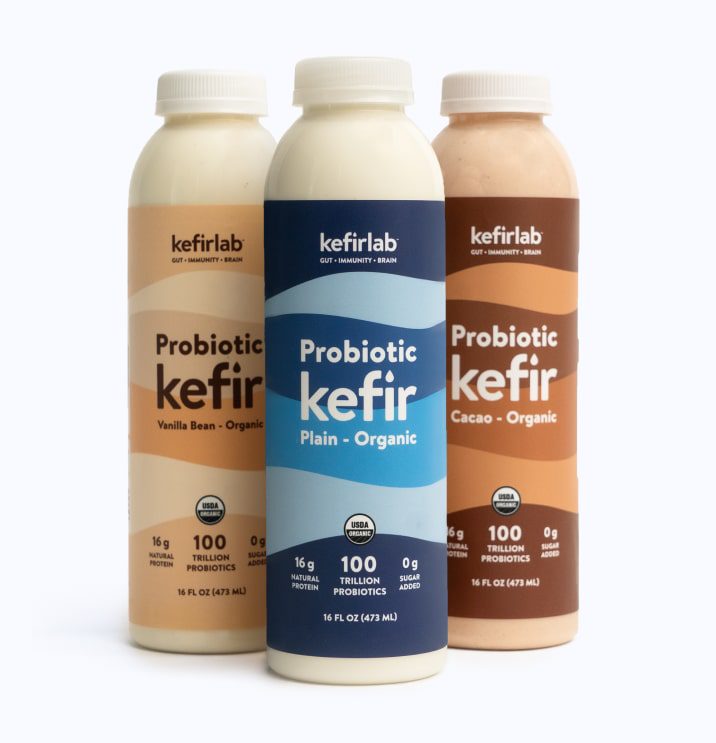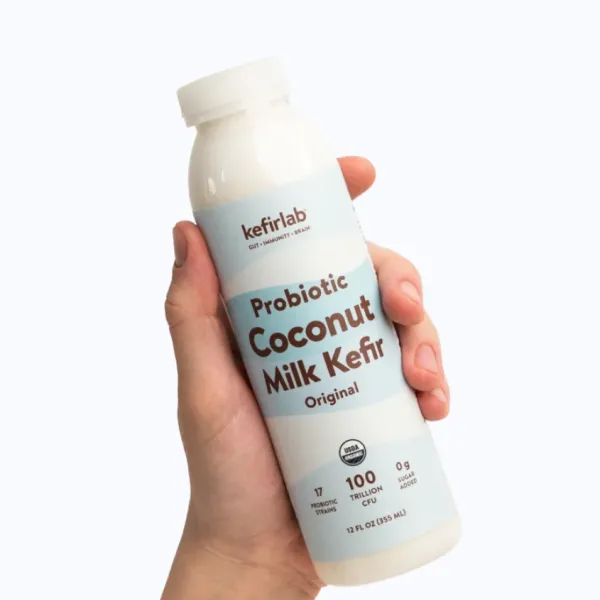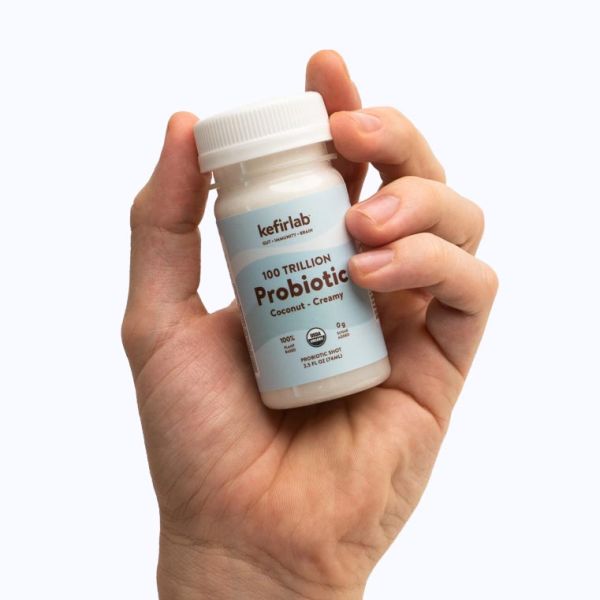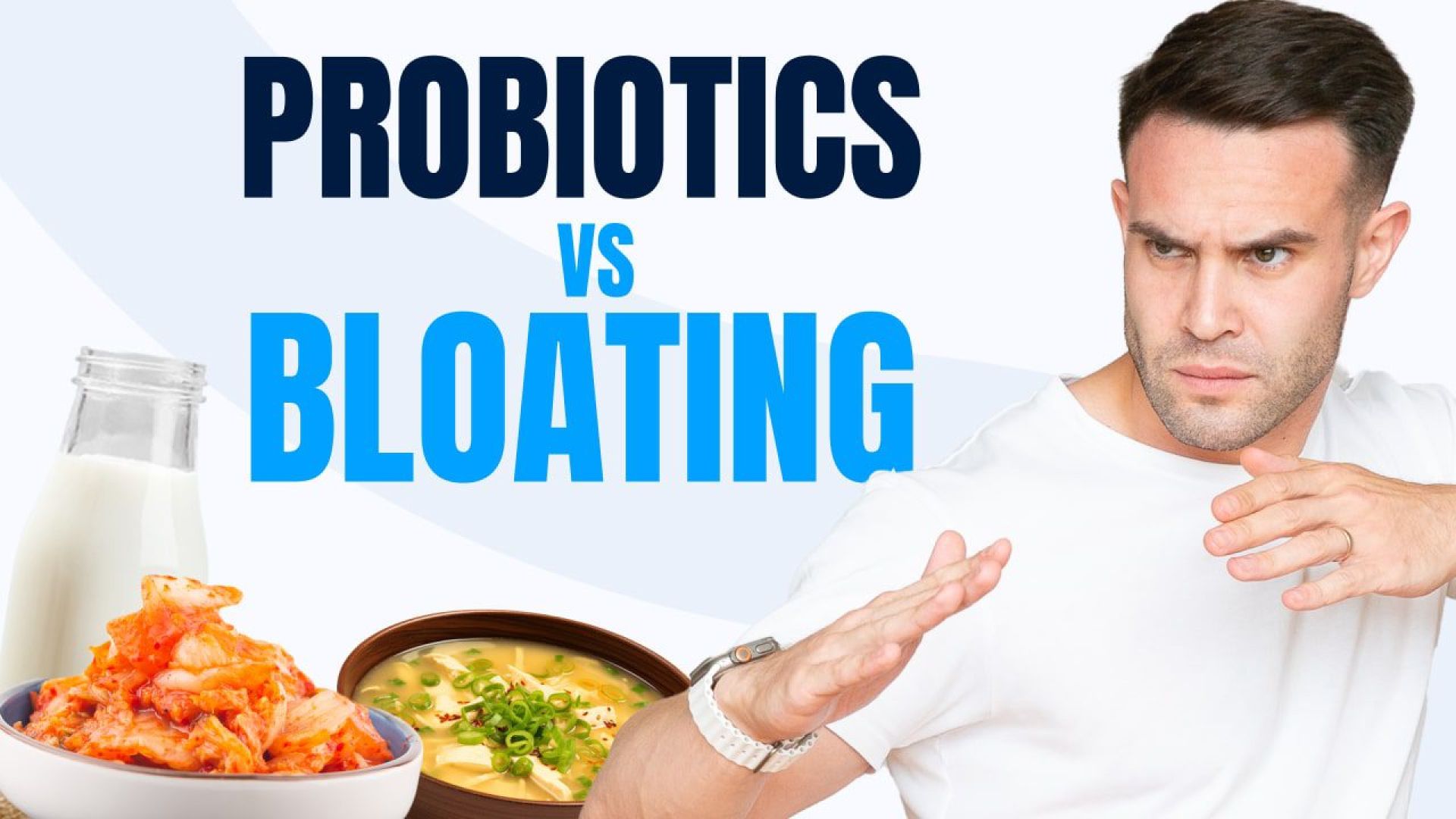Are Probiotics Good For Diarrhea? Everything You Need to Know

In This Article you will learn…
Diarrhea can be a distressing and inconvenient condition, disrupting daily life and impacting overall health.
Understanding how probiotics can help manage and alleviate diarrhea is essential for those seeking natural and practical solutions.
In this comprehensive guide, you will learn about the causes of diarrhea, the role of probiotics in gut health, and practical tips for incorporating probiotics into your routine to combat diarrhea effectively.
Understanding Diarrhea
What is Diarrhea?
Frequent, loose, or watery bowel movements characterize diarrhea.
It is a common condition that most people experience at some point.
Diarrhea can result from various factors, including infections, food intolerances, and digestive disorders.
Common symptoms of diarrhea include abdominal cramps, bloating, and an urgent need to use the bathroom.
Types of Diarrhea
There are different types of diarrhea, each with distinct causes and characteristics:
- Acute vs. Chronic Diarrhea: Acute diarrhea lasts for a short period, typically a few days, and is often caused by infections or food poisoning. Chronic diarrhea persists for more than four weeks and may indicate an underlying health condition such as irritable bowel syndrome (IBS) or inflammatory bowel disease (IBD).
- Traveler’s Diarrhea occurs when individuals consume contaminated food or water while traveling, particularly in regions with poor sanitation.
- Infectious Diarrhea: Caused by viruses, bacteria, or parasites, contagious diarrhea can spread rapidly, especially in close-contact settings like daycare centers or nursing homes.
- Antibiotic-Associated Diarrhea: Some people experience diarrhea after taking antibiotics, as these medications can disrupt the natural balance of gut bacteria.
The Role of Probiotics in Gut Health
What Are Probiotics?
Probiotics are live microorganisms, often called “good bacteria,” that provide health benefits when consumed adequately.
These beneficial bacteria help maintain a healthy balance in the gut microbiota, which is crucial for overall digestive health.
Common types of probiotics include strains from the Lactobacillus and Bifidobacterium genera, as well as the yeast Saccharomyces boulardii.
How Probiotics Work
Probiotics support gut health through various mechanisms:
- Balancing Gut Flora: Probiotics help restore and maintain the natural balance of gut bacteria, which illness, antibiotics, and poor diet can disrupt.
- Enhancing Immune Response: Probiotics can boost the immune system, helping the body fend off harmful pathogens that may cause diarrhea.
- Producing Beneficial Substances: Some probiotics produce substances that inhibit the growth of harmful bacteria, further promoting a healthy gut environment.
Scientific studies have shown that probiotics can effectively prevent and treat various types of diarrhea, making them a valuable tool for maintaining gut health.
Probiotics for Diarrhea Relief
How Probiotics Help with Diarrhea
Probiotics are effective in managing and alleviating various types of diarrhea.
Specific strains of probiotics can help shorten the duration of diarrhea, reduce the frequency of bowel movements, and alleviate symptoms such as cramping and bloating.
Some of the most well-researched probiotic strains for diarrhea relief include:
- Lactobacillus rhamnosus GG: Effective against acute diarrhea in children and adults, as well as antibiotic-associated diarrhea.
- Saccharomyces boulardii: A beneficial yeast proven to prevent and treat antibiotic-associated diarrhea and traveler’s diarrhea.
- Bifidobacterium lactis: Supports gut health and helps manage symptoms of irritable bowel syndrome (IBS), which can include diarrhea.
Research studies have demonstrated that these and other probiotic strains can significantly improve outcomes for individuals suffering from diarrhea, making probiotics a reliable and natural treatment option.
Using Probiotics for Diarrhea
To effectively use probiotics for diarrhea, consider the following recommendations:
- Dosage and Forms: Probiotics are available in various forms, including capsules, powders, dairy kefir, coconut kefir, and probiotic shots. The recommended dosage varies depending on the specific strain and product, so it’s essential to follow the instructions on the packaging or consult a healthcare provider.
- Timing and Duration: For best results, start taking probiotics at the onset of diarrhea symptoms and continue for several days after symptoms resolve. This helps ensure that the gut microbiota is adequately supported and balanced.
- Safety and Side Effects: Probiotics are generally safe for most people, but some individuals may experience mild side effects such as gas and bloating. Those with weakened immune systems or severe underlying health conditions should consult a healthcare provider before starting probiotic supplements.
- Probiotic Use in Different Populations: While probiotics are safe for most people, including children, pregnant women, and the elderly, it’s always best to consult a healthcare provider for personalized advice, especially for vulnerable populations.
KefirLab’s Probiotic Solutions
Probiotic Products
KefirLab offers a range of high-quality probiotic products designed to support gut health and manage diarrhea:
- Probiotic Shots: These convenient and potent shots blend beneficial probiotic strains to help restore gut balance and alleviate diarrhea symptoms.
- Coconut Kefir: A dairy-free option rich in probiotics, coconut kefir is an excellent choice for those with lactose intolerance or dietary preferences. It provides a natural and delicious way to incorporate probiotics into your diet.
By incorporating these probiotic products into your daily routine, you can effectively support your gut health and manage diarrhea more efficiently.
Services for Gut Health
KefirLab also offers valuable services to help you optimize your gut health:
- Gut Microbiome Analysis: This service comprehensively analyzes your gut microbiota, identifying imbalances and providing personalized recommendations for improving gut health.
- Health Coach: Personalized health coaching services can help you implement dietary and lifestyle changes to support gut health and prevent diarrhea.
Practical Tips for Managing Diarrhea with Probiotics
Dietary Recommendations
Managing diarrhea effectively involves using probiotics and making smart dietary choices. Here are some dietary recommendations to consider:
- Foods to Eat: Include bland, easy-to-digest foods like bananas, rice, applesauce, and toast (the BRAT diet). These foods can help firm up stools and reduce irritation in the digestive tract. Yogurt and fermented foods like kefir, which contain natural probiotics, are also beneficial.
- Foods to Avoid: Avoid fatty, greasy foods, dairy products (if you are lactose intolerant), and high-fiber foods, as they can aggravate diarrhea. Also, avoid caffeine, alcohol, and artificial sweeteners.
- Incorporating Probiotic-Rich Foods: Add probiotic-rich foods like kefir, yogurt, sauerkraut, and kimchi to your diet. These foods support gut health and help replenish beneficial bacteria lost during diarrhea.
- Importance of Fiber and Hydration: While high-fiber foods should be avoided during acute diarrhea, soluble fiber (in foods like oats and apples) can help absorb excess water and ease symptoms. Staying hydrated is crucial, so drink plenty of fluids, including water, herbal teas, and oral rehydration solutions.
Lifestyle Tips
In addition to dietary changes, certain lifestyle practices can help manage and prevent diarrhea:
- Staying Hydrated: Diarrhea can lead to dehydration, so it’s essential to drink fluids regularly. Oral rehydration solutions (ORS) can help replenish lost electrolytes and fluids.
- Maintaining Good Hygiene Practices: Proper handwashing and food safety practices can prevent infectious diarrhea. Wash your hands thoroughly with soap and water before eating or preparing food.
- Stress Management: Stress can negatively impact gut health and contribute to diarrhea. Practice stress-reducing activities like yoga, meditation, and regular exercise to support overall well-being.
- Regular Check-ups: If you experience chronic or recurrent diarrhea, it’s essential to seek medical advice. Regular check-ups with a healthcare provider can help identify underlying conditions and provide appropriate treatment.
Frequently Asked Questions about Probiotics and Diarrhea
Can Probiotics Cause Diarrhea?
While probiotics are generally safe and beneficial for most people, some individuals may experience mild digestive upset, including diarrhea, when first starting probiotics.
This is usually temporary and resolves as the body adjusts to the new balance of gut bacteria.
If symptoms persist, it’s advisable to consult with a healthcare provider.
How Long Does It Take for Probiotics to Work for Diarrhea?
The effectiveness of probiotics can vary depending on the individual and the specific strain used.
Some people may experience relief within a few days, while others might take longer to see significant improvement.
Consistency is key, so taking probiotics regularly as directed is essential.
Can I Take Probiotics with Antibiotics?
Yes, taking probiotics alongside antibiotics can help prevent antibiotic-associated diarrhea.
However, it’s advisable to take probiotics a few hours apart to ensure maximum effectiveness, as antibiotics can kill harmful and beneficial bacteria in the gut.
Are There Any Side Effects of Probiotics?
Probiotics are generally well-tolerated, but some people may experience mild side effects such as gas, bloating, or an upset stomach. These side effects are usually temporary and subside as the body adjusts. If you experience severe or persistent side effects, consult a healthcare provider.
What Are the Best Probiotic Strains for Diarrhea?
Specific probiotic strains that are effective against different types of diarrhea include Lactobacillus rhamnosus GG, Saccharomyces boulardii, and Bifidobacterium lactis.
These strains have been well-researched and shown to help alleviate symptoms of acute diarrhea, antibiotic-associated diarrhea, and traveler’s diarrhea.
How Should Probiotics Be Stored?
Storage instructions for probiotics vary depending on the product. Some probiotics require refrigeration to maintain their potency, while others are shelf-stable.
Always follow the storage instructions provided on the product label to ensure the probiotics remain effective.
Can Children Take Probiotics for Diarrhea?
Yes, probiotics are generally safe for children and can be beneficial in managing diarrhea.
Specific strains, such as Lactobacillus rhamnosus GG, are effective in children.
However, it’s essential to consult with a pediatrician before starting any new supplement for a child.
Can Probiotics Help with Chronic Diarrhea?
Probiotics can help manage chronic diarrhea by balancing the gut microbiota and improving overall gut health.
However, chronic diarrhea may have underlying causes that require medical attention. It’s essential to consult with a healthcare provider to determine the best treatment approach.
Are Probiotics Safe During Pregnancy?
Probiotics are generally considered safe during pregnancy and can benefit both the mother and the baby.
They can help maintain a healthy gut microbiota and may reduce the risk of gestational issues like constipation and gestational diabetes.
However, it’s always best to consult a healthcare provider before starting any new supplement during pregnancy.
What is the Difference Between Probiotics and Prebiotics?
Probiotics are live beneficial bacteria that help maintain a healthy balance in the gut.
Prebiotics, however, are non-digestible fibers that feed and support the growth of these beneficial bacteria.
Combining probiotics and prebiotics, known as synbiotics, can enhance the effectiveness.
Can I Get Enough Probiotics from Food Alone?
While it is possible to obtain probiotics from fermented foods like kefir, yogurt, sauerkraut, and kimchi, the concentration and specific strains may vary.
For therapeutic purposes, such as managing diarrhea, a high-quality probiotic supplement can ensure you receive an adequate and consistent dose of beneficial bacteria.
Conclusion
Managing diarrhea can be challenging, but incorporating probiotics into your routine offers a natural and effective way to alleviate symptoms and support overall gut health.
By understanding the different types of diarrhea and how probiotics work, you can make informed decisions about using these beneficial microorganisms to maintain a healthy digestive system.
Key Takeaways:
- Probiotics are live microorganisms that can help balance gut flora, enhance immune response, and produce beneficial substances crucial for managing diarrhea.
- Specific probiotic strains, such as Lactobacillus rhamnosus GG and Saccharomyces boulardii, have been proven effective in alleviating various types of diarrhea.
- KefirLab offers high-quality probiotic products, including probiotic shots and coconut kefir, which can be easily incorporated into your daily routine to support gut health.
- In addition to using probiotics, adopting dietary and lifestyle practices like staying hydrated, eating probiotic-rich foods, and maintaining good hygiene can help manage and prevent diarrhea.
Visit the HealthLab blog for more tips and insights on gut health and probiotics.
Also, explore our probiotic products and services to optimize your gut health and improve your overall well-being.
Works Cited and Relevant Studies
- McFarland, L. V. (2010). “Systematic review and meta-analysis of Saccharomyces boulardii in adult patients.” World Journal of Gastroenterology, 16(18), 2202-2222.
- Hickson, M. (2011). “Probiotics in the prevention of antibiotic-associated diarrhoea and Clostridium difficile infection.” Therapeutic Advances in Gastroenterology, 4(3), 185-197.
- Ritchie, M. L., & Romanuk, T. N. (2012). “A meta-analysis of probiotic efficacy for gastrointestinal diseases.” PLoS ONE, 7(4), e34938.
- Sazawal, S., et al. (2006). “Efficacy of probiotics in prevention of acute diarrhoea: a meta-analysis of masked, randomised, placebo-controlled trials.” The Lancet Infectious Diseases, 6(6), 374-382.
- Goldenberg, J. Z., et al. (2017). “Probiotics for the prevention of Clostridium difficile-associated diarrhea in adults and children.” Cochrane Database of Systematic Reviews, (12).
- Szajewska, H., & Mrukowicz, J. (2005). “Meta-analysis: non-pathogenic yeast Saccharomyces boulardii in the prevention of antibiotic-associated diarrhoea.” Alimentary Pharmacology & Therapeutics, 22(5), 365-372.
Join Kefir Club
Like our probiotics, our emails are clean and good for you. Spam Free. Unsubscribe anytime.














